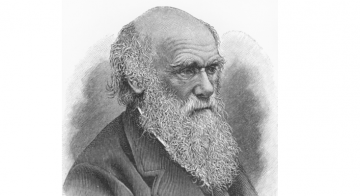Aaron Hirsh in Nautilus:
 Many historians have noted the intimate connection between the theory of natural selection and the ascendant political and economic views of the society in which Darwin was a well-placed member. The Victorian elite were committed to the idea that the unfettered competition of Adam Smith and David Ricardo’s free market would drive economic and social advancement. In Darwin’s theory, they found nature’s own reflection of the social system they favored. As J.M. Keynes put it, “The principle of the survival of the fittest could be regarded as a vast generalization of the Ricardian economics.”
Many historians have noted the intimate connection between the theory of natural selection and the ascendant political and economic views of the society in which Darwin was a well-placed member. The Victorian elite were committed to the idea that the unfettered competition of Adam Smith and David Ricardo’s free market would drive economic and social advancement. In Darwin’s theory, they found nature’s own reflection of the social system they favored. As J.M. Keynes put it, “The principle of the survival of the fittest could be regarded as a vast generalization of the Ricardian economics.”
Yet while this observation has often been made in relation to Darwin’s work, the theory of thermodynamics has largely escaped similar contextualization. Perhaps physics, in all its rigors, is deemed less susceptible to social involvement. In truth, though, Darwinian and thermodynamic theories served jointly to furnish a propitious worldview—a suitable ur-myth about the universe—for a society committed to laissez-faire competition, entrepreneurialism, and expanding industry. Essentially, under this view, the world slouches naturally toward a deathly cold state of disorder, but it can be salvaged—illuminated and organized—by the competitive scrabble of creatures fighting to survive and get ahead.
As with Darwin’s work, the extension of thermodynamic theory into areas where it did not strictly apply has often led to faulty conclusions. William Thomson himself stumbled into this pitfall when he tried to estimate the age of the Earth. It was a fraught and momentous question—How old is the planet?—because Darwin had just published On the Origin of Species, and the evolutionary process he had proposed required great stretches of time to produce the diverse and exquisite structures of plants and animals. In truth, no one had yet developed those elements of evolutionary theory that permit a well-informed estimate of how long the evolution of life on Earth must have taken. Yet somehow, Darwin had a sense, and he figured it must have taken at least a billion years.
More here.
